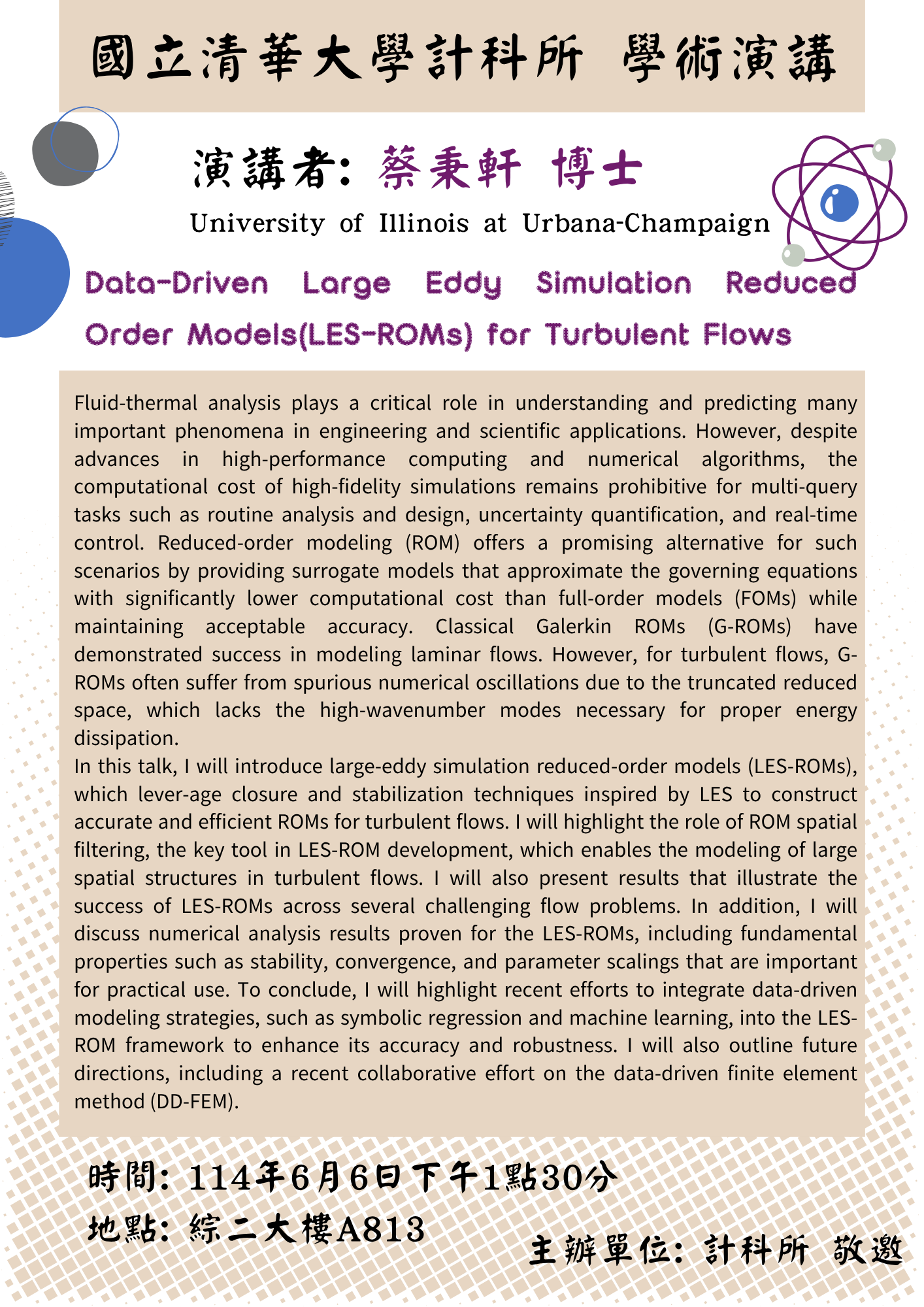【學術演講】蔡秉軒 博士 - Data-Driven Large Eddy Simulation Reduced Order Models (LES-ROMs) for Turbulent Flows
【講題】Data-Driven Large Eddy Simulation Reduced Order Models(LES-ROMs) for Turbulent Flows
【演講時間】6月6日(星期五)下午1點30分
【演講地點】清華大學校本部第二綜合大樓B側8樓A813室
【摘要】
Fluid-thermal analysis plays a critical role in understanding and predicting many important phenom-
ena in engineering and scientific applications. However, despite advances in high-performance computing
and numerical algorithms, the computational cost of high-fidelity simulations remains prohibitive for
multi-query tasks such as routine analysis and design, uncertainty quantification, and real-time control.
Reduced-order modeling (ROM) offers a promising alternative for such scenarios by providing surrogate
models that approximate the governing equations with significantly lower computational cost than full-
order models (FOMs) while maintaining acceptable accuracy. Classical Galerkin ROMs (G-ROMs) have
demonstrated success in modeling laminar flows. However, for turbulent flows, G-ROMs often suffer from
spurious numerical oscillations due to the truncated reduced space, which lacks the high-wavenumber
modes necessary for proper energy dissipation.
In this talk, I will introduce large-eddy simulation reduced-order models (LES-ROMs), which lever-
age closure and stabilization techniques inspired by LES to construct accurate and efficient ROMs for
turbulent flows. I will highlight the role of ROM spatial filtering, the key tool in LES-ROM development,
which enables the modeling of large spatial structures in turbulent flows. I will also present results that
illustrate the success of LES-ROMs across several challenging flow problems. In addition, I will discuss
numerical analysis results proven for the LES-ROMs, including fundamental properties such as stability,
convergence, and parameter scalings that are important for practical use. To conclude, I will highlight
recent efforts to integrate data-driven modeling strategies, such as symbolic regression and machine learn-
ing, into the LES-ROM framework to enhance its accuracy and robustness. I will also outline future
directions, including a recent collaborative effort on the data-driven finite element method (DD-FEM).


